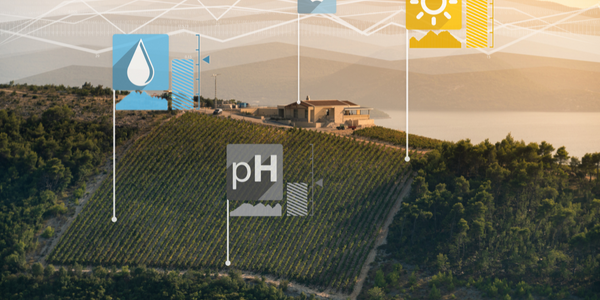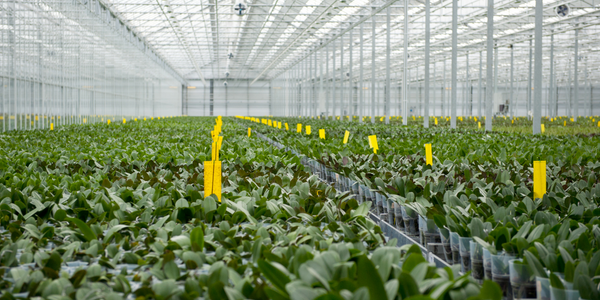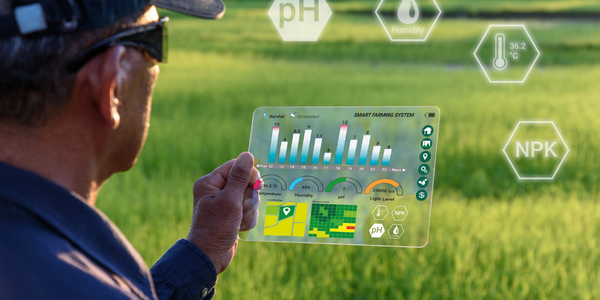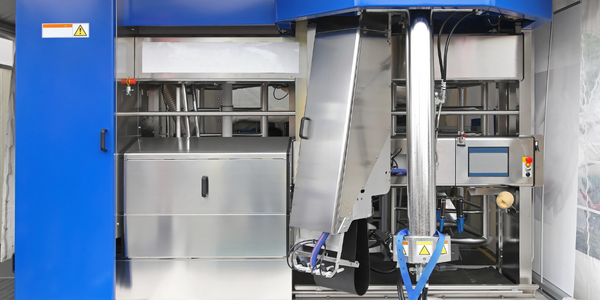
Technology Category
- Infrastructure as a Service (IaaS) - Backup & Recovery
- Infrastructure as a Service (IaaS) - Cloud Computing
Applicable Industries
- Agriculture
- E-Commerce
Applicable Functions
- Procurement
- Product Research & Development
Use Cases
- Construction Management
- Infrastructure Inspection
Services
- Cloud Planning, Design & Implementation Services
- System Integration
The Customer
Indian Farmers Fertiliser Cooperative Ltd. (IFFCO)
About The Customer
Indian Farmers Fertiliser Cooperative Ltd. (IFFCO) is the world’s largest manufacturer and marketer of fertilizers in the cooperative sector. It serves over 35,000 cooperatives and 55 million farmers across India. IFFCO has five manufacturing plants in India and 19 joints ventures within India and overseas. It has been using Oracle products for decades and using Oracle Cloud Infrastructure (OCI) more recently to modernize its IT estate. IFFCO is committed to bringing innovative ideas to market to improve the livelihood of farmers in India. It recently launched a first of its kind nano urea, a portable 500 ml bottled product that replaces 45 kg urea bags, improving crop yields by 8–10%, reducing pesticide and chemical fertilizer use, and mitigating soil erosion.
The Challenge
Indian Farmers Fertiliser Cooperative Ltd. (IFFCO), the world’s largest manufacturer and marketer of fertilizers in the cooperative sector, was facing several challenges in its quest to innovate and improve the livelihood of farmers in India. The organization had recently launched a new product, nano urea, which brought new demands to IFFCO’s cloud computing needs. The organization needed a reliable cloud vendor to support the processes of 6–7 new manufacturing plants during the upcoming year, enhancing its production capability 300–350 million bottles of nano urea to meet increasing demand. IFFCO’s cloud adoption was driven by a need to innovate. The organization wanted capabilities for a dynamic business that can adapt to the changing needs of the market while growing fast. However, it was inhibited by rigid on-premises data center deployments and the overhead of maintaining legacy systems. IFFCO wanted to apply the elasticity and availability of cloud for improving overall performance of applications at lowest possible operational overhead. Lastly, IFFCO needed to provide the benefits of its technology to all its stakeholders, including employees, members, transporters, and farmers, some of whom have limited literacy. To accommodate all stakeholders, IFFCO wanted to add a voice interface to its applications.
The Solution
IFFCO has worked with Oracle for more than two decades on its critical applications and databases that enable business activities. All custom applications are deployed on Windows Server 2012 VMs comprising five WebLogic Servers and nine .NET Servers. In addition, IFFCO used IBM AIX P8 machines for running corporate, marketing, and ERP applications. The organization has 100+ applications running on OCI, including Oracle E-Business Suite. IFFCO has replaced on-premises infrastructure with OCI, which provides better availability, security and scalability. IFFCO uses several Oracle products for its business operations, including Oracle E-Business Suite, eVikas CRM, and several other custom applications for procurement, supply chain management, and HR management. The deployment consists of two OCI regions in India: Mumbai and Hyderabad. The cloud deployment is in a hub-and-spoke model. The Mumbai region acts as the hub for all other plant infrastructure. The Mumbai region hub is connected to on-premises infrastructure using FastConnect, which provides low-latency data transfers over a dedicated and secure network path.
Operational Impact
Quantitative Benefit

Case Study missing?
Start adding your own!
Register with your work email and create a new case study profile for your business.
Related Case Studies.

Case Study
Intelligent Farming with ThingWorx Analytics
Z Farms was facing three challenges: costly irrigation systems with water as a limited resource, narrow optimal ranges of soil moisture for growth with difficult maintenance and farm operators could not simply turn on irrigation systems like a faucet.

Case Study
Greenhouse Intelligent Monitoring and Control Solution
Farming Orchids is the most successful form of precision farming in Taiwan, and also the most exported flower. Orchids need a specific temperature and humidity conditions to grow and bloom, and its flowering time may not be in line with market demands, so the price collapses when there is overproduction. Therefore, some farmers began to import automated greenhouse control systems for breeding and forcing, which not only improves quality, but also effectively controls the production period and yield to ensure revenue. In 2012, an orchid farmer built a Forcing Greenhouse of about 200 pings (approximately 661 Square Meters) in Tainan, Taiwan. The system integrator adopted Advantech’s APAX-5000 series programmable automation controllers to build the control platform, coupled with Advantech WebAccess HMI/SCADA software, to achieve cloud monitoring. The staff of the orchid field can monitor important data anytime via smart phone, iPad, and other handheld devices, and control the growth and flowering conditions. System requirements: In the past, most environmental control systems of orchid greenhouses in Taiwan used PLCs (Programmable Logic Controller) with poorscalability and control, and could not be connected to the Internet formonitoring from the cloud. For advanced database analysis and networking capability, the PC platform must be adopted. Therefore, PAC Systems (Programmable Automation Controller) with both PLC programming capabilities andPC functions is a better choice.The environmental control of the Orchid greenhouse switches on and off devices like fan, shade net, cooling/heat pump, liquid flow control, water-cooling wall etc. It is controlled by a control panel of electric controllers, and is driven by a motor, to adjust the greenhouse temperature, humidity, and other environmental conditions to the set parameters.

Case Study
Precision beekeeping with wireless temperature monitoring
Honeybees are insects of large economic value and provide a vital service to agriculture by pollinating a variety of crops. In addition, bees provide us with valuable products such as honey, beeswax, propolis, bee venom, etc. Monitoring of honeybee colony health, population, productivity, and environmental conditions affecting the colony health have always been exceedingly difficult tasks in apiculture. Research has shown that even small deviations (by more than 2°C) from the optimal temperatures have a significant influence on the development of the brood and the health of adult bees.

Case Study
Enabling Internet of Things Innovation in Agriculture
DigiBale, wanted to apply technology know-how and IP from implementations successfully to more agriculture sectors including cotton, forestry, sugarcane and cattle. However, farmers and growers still have worries about the connected technology.









